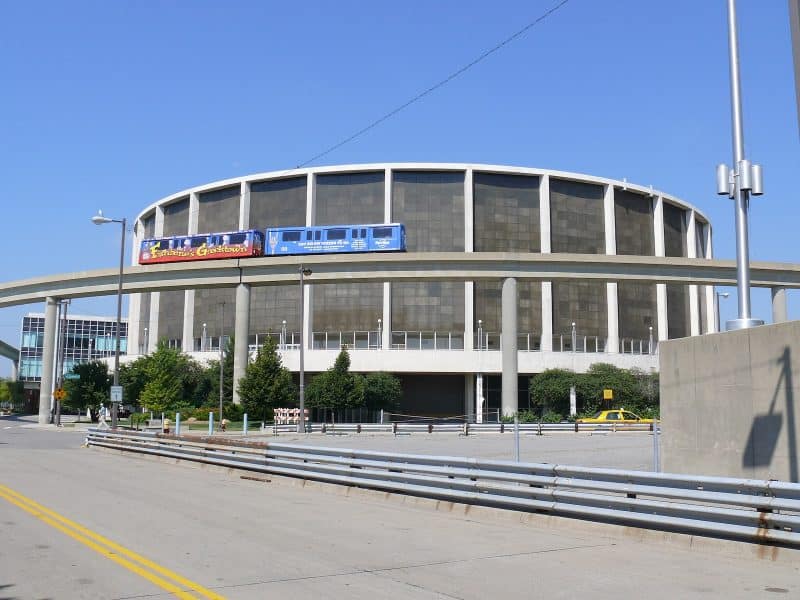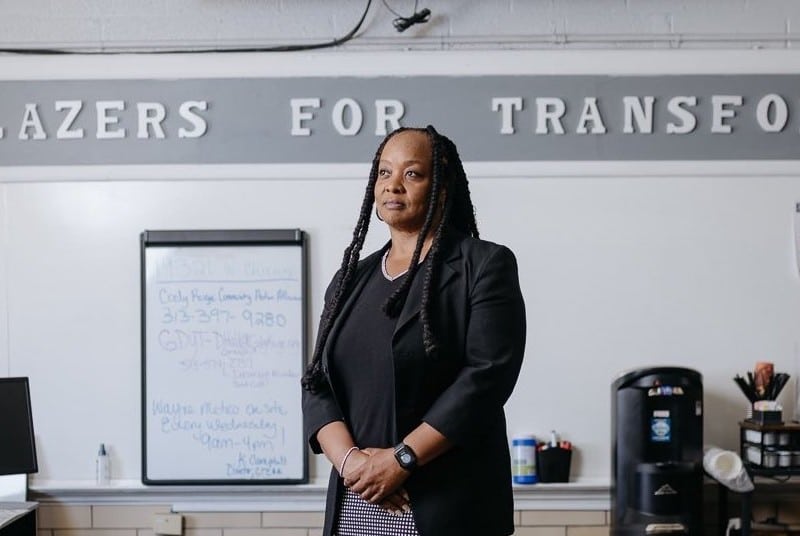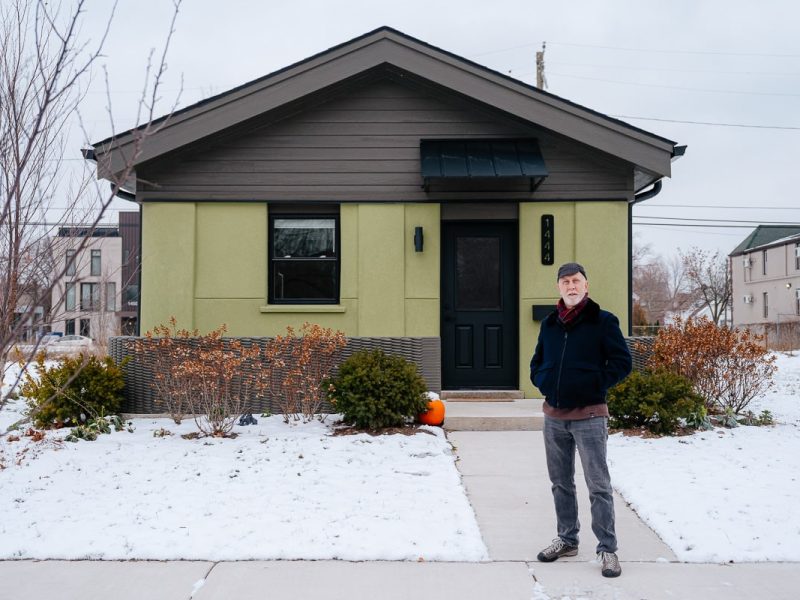“We can all be placemakers”: The programs training Detroiters in development
Multiple programs in Detroit operate under the philosophy that training minority developers will result in developments that more accurately represent the interests of the city's residents.
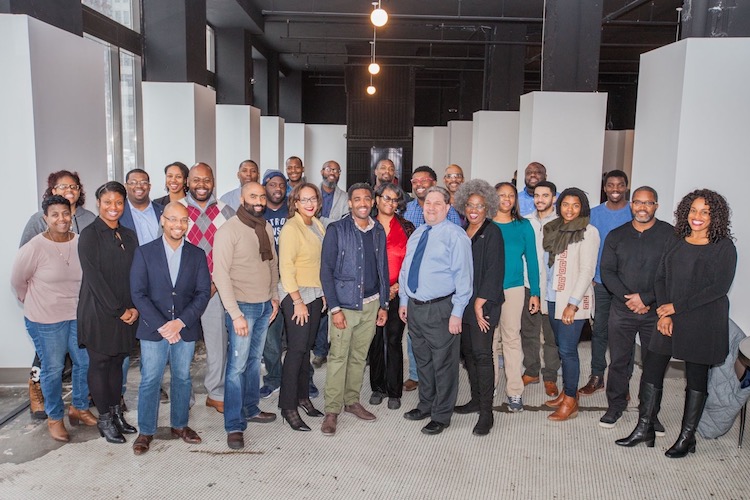
As a real estate attorney with Dykema Gossett PLLC, Chase L. Cantrell helped usher through some of the biggest Detroit developments in that tricky window between the country’s 2008 economic recession and the city’s 2013 declaration of bankruptcy. Developments like The Auburn in Midtown and downtown’s Broderick Tower were just hints of the current development wave now experienced throughout Detroit’s greater downtown.
Cantrell was living in Brush Park and going to openings for these new bars and restaurants, places like Corktown’s upscale craft cocktail bar The Sugar House that seemed novel at the time. But he was also seeing family at his childhood home in Grandmont Rosedale and friends he grew up with throughout the city.
In stepping outside the downtown bubble, Cantrell looked around and realized that the developments taking off downtown weren’t happening in other parts of the city. And the developers didn’t reflect the citizens of Detroit, either.
“Most of the developers that I was working with were white and resourced while being in an 80-plus percent black and brown city,” Cantrell says.
Cantrell would eventually leave his law firm for the much more uncertain waters of starting his own non-profit organization.
Building Community Value (BCV) was founded in 2016 first with the goal to purchase and renovate commercial space. But Cantrell soon realized that if he wanted to scale his impact throughout the city of Detroit, he would have to help build capacity for its residents and community development organizations.
Building Community Value now offers a three-month course, Better Buildings, Better Blocks, that teaches the fundamentals of real estate to budding developers. Each cohort represents each of the seven districts throughout the city, as well as Hamtramck and Highland Park — its demographics reflecting the city and its overwhelmingly majority population of people of color. Its students have ranged in ages from 22 to 70 years old. Not all the students are from a “minority” population, but the majority are.
The goal is to create a more equitable development ecosystem in the city of Detroit.
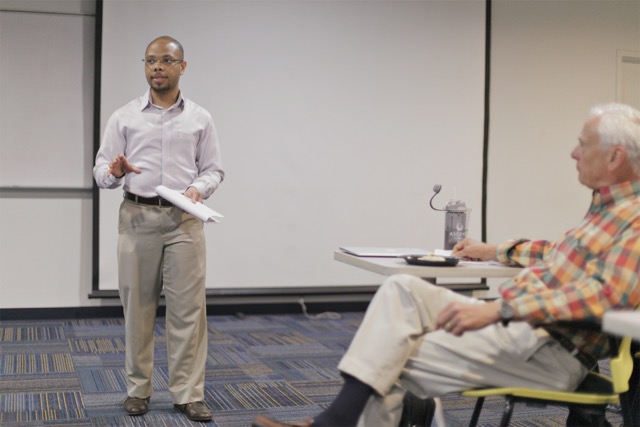
Development often comes down to financing. Getting a project off the ground in the city is already difficult enough, typically requiring layers of financing in the form of loans, subsidies, and tax credits.
And that’s downtown. But for an African-American first-time developer trying to get a project off the ground in one of the city’s outlying neighborhoods, it’s much more difficult.
The theory behind BCV is that training more Detroiters in development will result in developments that more accurately represent the residents of the neighborhoods themselves. A commercial project is more likely to succeed if it’s developed by someone that knows the neighborhood in which its being built. A landlord has a better grasp on fair rental rates when they know their residents.
“When people begin to fear displacement in their neighborhoods, one way to alleviate those fears is to have landlords who actually understand the community,” Cantrell says.
More than 130 people have graduated from Building Community Value since its launch, and a number of them have gone on to get developments successfully off the ground.
For Cantrell, this is significant for a number of reasons. “Just in terms of the scale of the problem that we currently have with vacant property around the city — we don’t have enough developers to actually tackle the problem.
“And if we’re going to build that pipeline, to me, it should be people who live in the neighborhoods.”
Like Building Community Value, the Equitable Development Initiative by Capital Impact Partners is designed to produce more minority developers in Detroit. And like BCV, the initiative wasn’t initially meant to be a training program.
Unlike BCV, however, Capital Impact Partners is an extremely well-funded national organization that has deployed more than $2.5 billion to projects throughout the United States. Founded in the 1980s to fund cooperative projects, the organization has since expanded to finance affordable housing projects in places like Washington D.C. and Oakland, California.
While financing remains their primary means of support, Detroit is the only place where the organization has taken a more comprehensive approach to creating opportunity. Having first worked in the city in 2010 on the Woodward Corridor Initiative, Capital Impact created the Equitable Development Initiative when it realized that roughly 90 percent of its financing for the Woodward project went to non-minority-led firms.
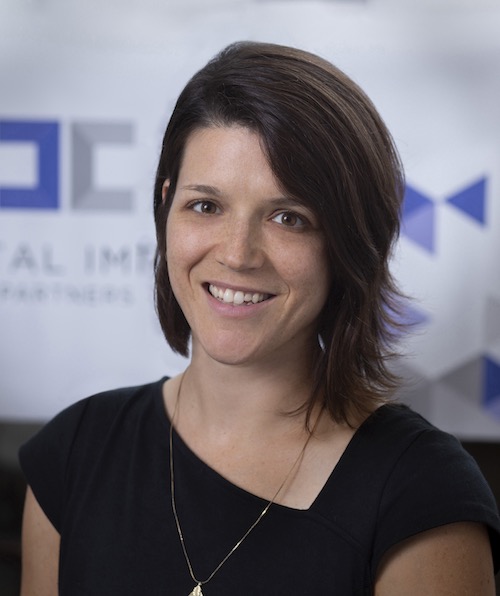
“We developed this program in response to that realization,” says Elizabeth Luther, Detroit Program Manager for Capital Impact Partners. “We recognized that it was essentially the inverse of the demographics of the city of Detroit.”
In a program that was first meant to finance minority developers, Capital Impact soon realized that it could be more effective in providing assistance beyond financing, though the latter remains a priority. The program now provides training, technical assistance, mentorships, networking opportunities, and eventually financing.
It especially focuses on African-American Detroiters seeking to develop multi-family rental units, though some mixed-use developments and even a food hall concept make up part of the first cohort. There are 28 people in the inaugural class, which began in February 2018.

The Equitable Development Initiative remains in its pilot two-year window. Just as it adjusted course to include a training component, Capital Impact plans to continue monitoring the project to see how it can be made better. But the impetus remains on creating a more equitable development and real estate industry throughout Detroit.
“The goal of our program is to help build wealth locally,” Luther says.
Building Community Value and the Equitable Development aren’t the only organizations with such a mission. Incremental Development Alliance of Minneapolis hosts workshops in Detroit, teaching the benefits of small-scale development on a local level. Native Detroiter Michael Ford, now of Madison, Wisconsin, created Hip Hop Architecture where he goes to different cities, including Detroit, and hosts Hip Hop Architecture Camps for local children, using hip hop culture to teach ideas of architecture, urban planning, and design.
And then there’s Project Destined, a non-profit organization that launched its inaugural class in Detroit in September 2016 and has since launched another in Memphis. Like Hip Hop Architecture, Project Destined aims to teach urban youth about development.
For Cantrell, each organization works together to build a larger development ecosystem. Those with little experience become small-time developers. Small-time developers become companies with multiple projects. And Detroit youth start learning the skills for wealth-building at an early age.
“We can all be placemakers if we start at a younger age.”
This article is part of our Equitable Development series, in partnership with Doing Development Differently in Metro Detroit, where we explore issues and stories on growing Detroit in a way that allows people from all races, classes, and abilities to participate and benefit. Read more articles in the series here.
Support for this series is provided by the Knight Foundation, Knight Fund at the Community Foundation for Southeast Michigan, and W.K. Kellogg Foundation.
Photos, except where mentioned, by Ara Howrani, Howrani Studios.
